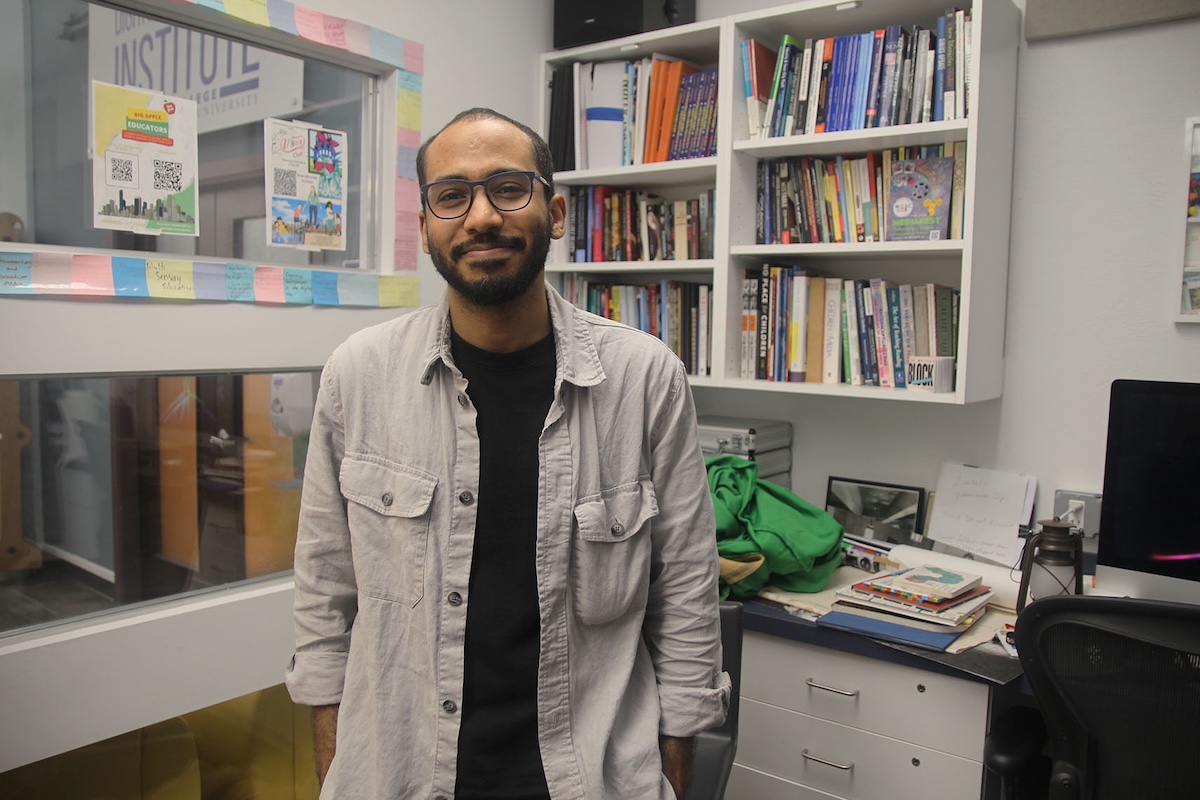To help document the atrocities unfolding in his home country, TC doctoral candidate and part-time instructor Abu Abdelbagi supported the team at The New York Times in the production of their visual investigation on key forces in the Sudanese civil war, which has now won a 2025 Pulitzer Prize in International Reporting.
The Times’ reporting — a six-part series led by chief Africa correspondent Declan Walsh — documents the ongoing war that has displaced an estimated 12 million people and killed more than 150,000. Abdelbagi, a media scholar specializing in media literacy and civic engagement, was recruited to support the Times’ visual investigation team based on a 2023 article published by the College detailing Abdelbagi’s ongoing work focused on media literacy in Sudan.
The New York Times' “six-month investigation using battlefield videos, satellite images and witness testimony identifies the commanders running the paramilitary Rapid Support Forces fighting Sudan’s army, including those who oversaw repeated atrocities.” TC doctoral candidate Abu Abdelbagi supported the making of the revelatory visual investigation video.
A Sudan native, Abdelbagi translated hours of videos documenting the war for the Times team, and collaborated with editors and producers in the production of the 30-minute investigation segment. His work with the Times aligns closely with his research interests at Teachers College, where his scholarship has centered on the role of media in effecting change.
“As researchers, often the tendency is to critique media, and less so to think of media and media making as research,” says Abdelbagi. “So when the Times team reached out to me about this opportunity, I was deeply invested because my research has always been grounded in social impact. I don’t think of research in isolation, and this project aligned well into my specialty and values.”
For Abdelbagi, who left Sudan in 2019, the potential impact of examining media literacy in his home country is highly personal.
“I have left Sudan, but it has never left me. All of my work has been around Sudan, and trying to imagine a better Sudan,” says the TC doctoral candidate. “Working on this project was something I felt I had to do. It was a very intimate, personal project — as research should be.”
Supporting the Times included watching hours of extremely traumatic footage — which Abdelbagi acknowledges took a toll on his mental health. The project is further contextualized by the distressing fact that Abdelbagi still has extended family and friends in Sudan. “However, I feel very grateful for the support and community I find in TC and Media and Social Change Lab, particularly for my adviser Dr. Ioana Literat’s mentorship and care.”
Abu is not only a brilliant scholar, but one of the kindest, most thoughtful and creative people I’ve had the privilege to work with. He brings deep integrity, curiosity, and heart to everything he does. Our community is better because of him — and I’m a better researcher, teacher, and mentor for having learned alongside him all these years.
Members of Abdelbagi’s family were naturally fearful when he embarked on the Times’ reporting project. But his contribution — in literally helping other Sudanese people have a voice on the global stage — has offered hope.
“Within this devastating sequence of events, that was one thing that was positive -– that I was involved in something trying to raise awareness and show evidence about the atrocities happening there,” Abdelbagi says. “My family and TC family want to see me more involved in video and media creation, which I plan to incorporate even more into my work. Researching and making media should go hand-in-hand.”
